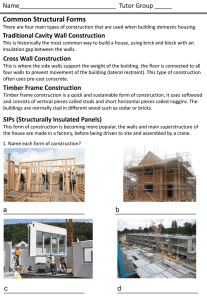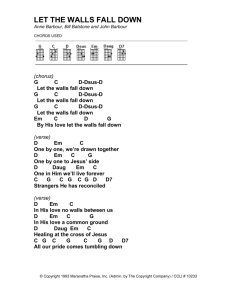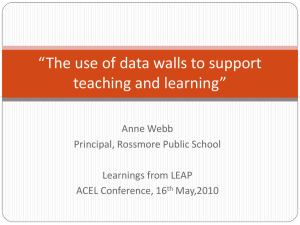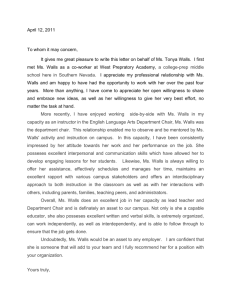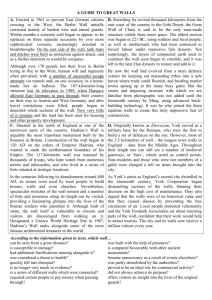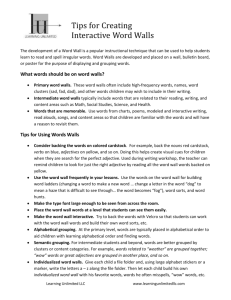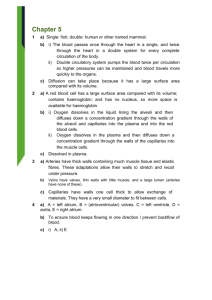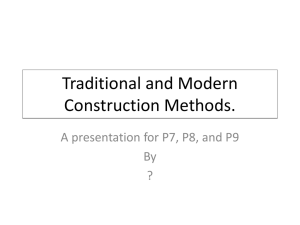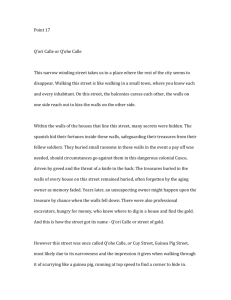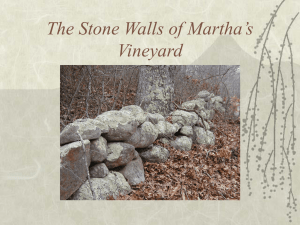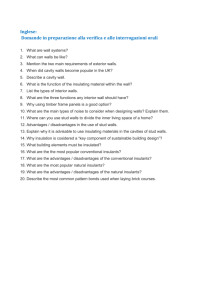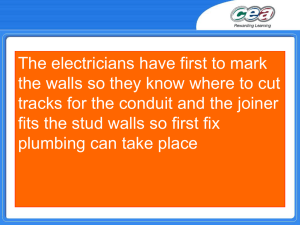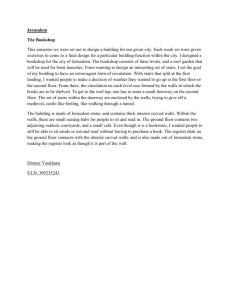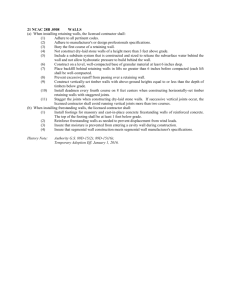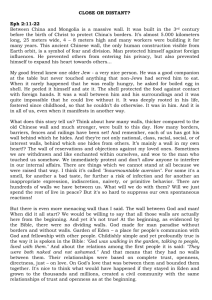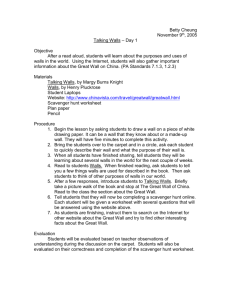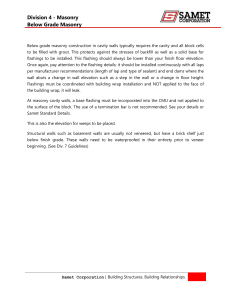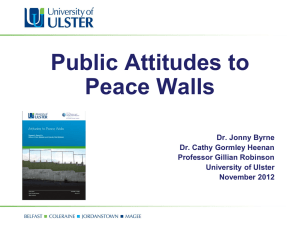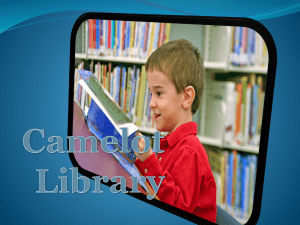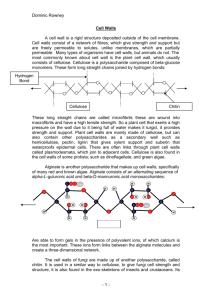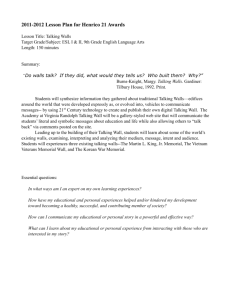How to build effective word walls
advertisement
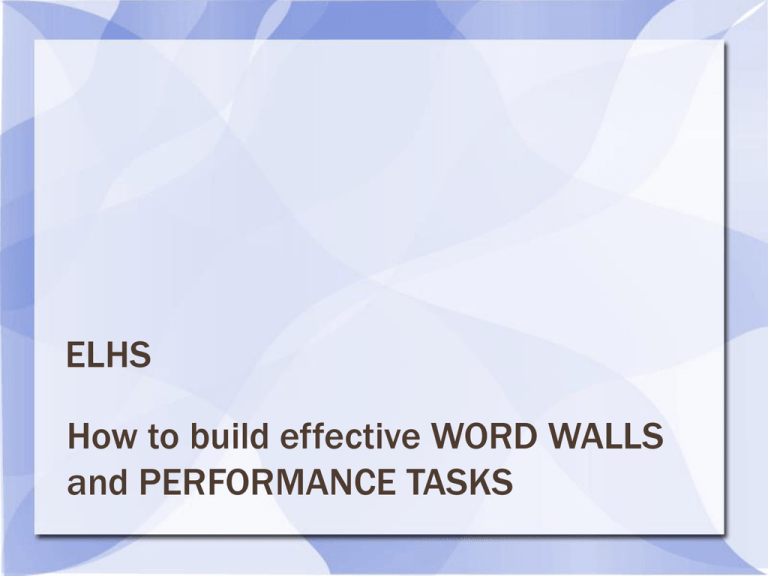
ELHS How to build effective WORD WALLS and PERFORMANCE TASKS WHAT IS A WORD WALL? What a word wall is not… A list of people/events/terms that are placed on the wall and never referred to throughout the year A static list that never changes Typed content words on paper that is yellow with age because they have been there soooooo long! What is a Word Wall? A word wall is a systematically organized collection of words that increases and decreases throughout the year displayed in large letters on a wall or other large display area in the classroom a tool to use, not just display that is designed to promote group learning a student centered/student created list Why Word Walls? Words -- the most important tools of a reader or a writer Words -- absolutely essential in our classrooms Words -- must be in full view so that teachers and students can work through texts together so that students can see them and use them in their writing Importance of Word Walls Word Walls promote vocabulary growth and lead to improvement in literacy. Word Walls serve many purposes: Provide meaningful building of vocabulary with emphasis on student engagement and higher order thinking skills (H.O.T.S.) Build vocabulary thereby improving reading comprehension and writing styles Importance of Word Walls Provide students with high-frequency words that will be encountered in particular units of study Reinforce understanding of subject-specific vocabulary with a focus on students internalizing key concepts Help students to improve spelling and make sure they follow basic grammar rules of CAPITALIZATION Importance of Word Walls Provide visual clues for students Encourage increased student independence when reading and writing Regardless of the grade level or the subject area, word walls are an extremely effective teaching and learning tool. Elements of Effective Word Walls Build over time with shared studentteacher responsibility Words added with caution-average five words per week Practical and used on a daily basis, easily seen Hands-on, let the students create them See back page of handout for check list Strategies for Engaging Students in Building the Word Wall Use students’ ideas and suggestions in determining words to be used- What words do they already know? Point to the WORD as you are using it in discussion Vary activities for using words on the word wall- see handout. How to Teach Students to Provide OnGoing Maintenance of the Word Wall Students may Serve as weekly Word Wall Monitors to assess condition of the wall Easy to read and use Words in good condition or in need of repair Suggest words to be added to the wall Develop ideas for Word Wall activities “Make no mistake about it: when we teach a child to read, we change the world.” What is a performance task? performance task: An assessment exercise that is goal directed. The exercise is developed to elicit students' application of a wide range of skills and knowledge to solve a complex problem. performance criteria: A description of the characteristics to be assessed for a given task. Performance criteria may be general, specific, analytical trait, or holistic. They may be expressed as a scoring rubric or scoring guide. What does the research show? Research suggests that learning how and where information can be applied should be a central part of all curricular areas. Also, students exhibit greater interest and levels of learning when they are required to organize facts around major concepts and actively construct their own understanding of the concepts in a rich variety of contexts. Performance assessment requires students to structure and apply information, and thereby helps to engage students in this type of learning. http://www2.ed.gov/pubs/OR/ConsumerGuides/pe rfasse.html What is the goal of the task? "You can't assess kids' performance unless you give them the tasks, and you can't assess their degree of achievement unless they actually perform the tasks. But first you must be clear about what you want kids to know and be able to do, or what we call 'content standards.' Those content standards become the target for creating the assessment.” Rethinking Tests and Performance Tasks by Robert J. Marzano Essential Questions: How can we effectively use WORD WALLS to ensure our students are engaged in meaningful vocabulary activities? How might we use WORD WALLS for formative assessment of mastery of standards? How does the use of performance tasks support mastery of the GPS? Key characteristics… 1. Student centered 2. Must apply knowledge to find answers 3. Open-ended, creates rigor by asking them to use the HFV-analyze, compare, contrast, etc. 4. Has a specific outcome 5. Must be tied to standard!
